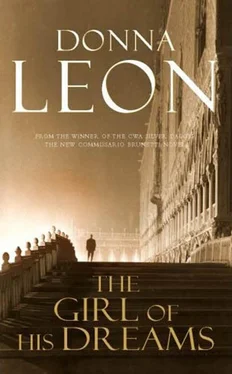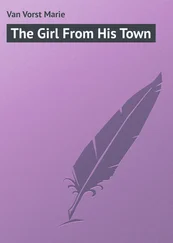Brunetti's driver returned to their car, but Brunetti remained standing in front of it. After a few minutes, the man who had acted as leader the last time Brunetti visited the camp opened the door to his caravan and came down the steps. Brunetti took a few steps forward. Tanovic walked over and stopped about a metre from him.
'Why you do that?' he asked angrily, jerking his head aside to indicate the places where the cars had stood.
‘I don't want you people to run any risks,' Brunetti said. Then, before the man could speak, he added, 'It's dangerous to break some laws.'
'What laws we break?' the man asked, pumping indignation into his voice.
'Having insurance when you drive a car,' Brunetti explained. 'And headlights, and seat belts. You didn't do the things the police want you to do.'
'No need take cars,' the man said, making the jerking motion again.
'You're here, aren't you?' Brunetti asked. 'Talking to me.'
The man's eyes widened at this, as if he preferred to play the game of power without ever talking about the moves that were being made. ‘I come other time,' he said. ‘I busy now.'
‘I don't have time to waste,' Brunetti said in a very unpleasant voice. 'You waste my time. I waste your time.'
The man did not want to enter into a discussion of this. 'What you want?'
'I'd like to speak to Signor and Signora Rocich.'
The man stared at Brunetti as though he still expected him to answer his question.
Brunetti waited for him to speak. He had seen the blue Mercedes with the damaged fender when they drove in. He waited a bit longer then sighed and turned away. He walked over to the police car, bent to the window and said, loud enough for the other man to hear, 'You think you could call them in Treviso again?'
'Wait, wait,' he heard Tanovic say from behind him. 'He just come.'
Brunetti straightened up. The other man walked over to the caravan from which Rocich had emerged the last time and stamped his foot on the bottom step: once, twice, three times. Then he backed off two steps. Brunetti joined him. The man pulled a telefonino from the pocket of his leather jacket and punched in a number. Brunetti heard a phone ring twice, then it was answered with a single, shouted word. The man answered with two and broke the connection. He turned to Brunetti and gave a wolfish smile, as if to offer this as his next move in whatever game they were playing.
The door to the Rocich caravan opened and the same short man emerged. He came down the steps and paused at the bottom. Brunetti felt, as if it were heat radiating from a furnace, rage emanating from the man. Nothing, however, showed on his face, as impassive as the last time.
He walked the two steps to them and asked something of the other man, who answered him quickly. Rocich began to object, or so it sounded to Brunetti, but he was cut off. As their dialogue continued, Brunetti, who gave every appearance of paying no attention at all, and who could in fact follow only the way the men moved and the rising and falling tones of their voices, felt the rage in Rocich grow.
Brunetti folded his arms and spread a look of infinite boredom across his face. He turned away from the men and let his eye roam up the hill, then, chin still raised, he took a quick glance at the caravan, where again he detected signs of motion, this time behind both of the windows, now only a few metres away. He turned his head to the other side and looked out at the road that passed the camp, pursed his lips impatiently, then looked quickly back at the caravan, where he could now distinguish what looked like two heads at the windows.
Tanovic broke away and walked back to his caravan. He walked up the stairs and went inside, closing the door softly. That left Brunetti and Rocich.
'Signor Rocich, I'm sorry about the death of your daughter’
The man spat on the ground, but he turned his head away before he did it.
'Signor Rocich, I'm the one who found her body. I took her out of the canal,' Brunetti said, almost as if he hoped this would establish some sort of a bond with the man, though well he knew the impossibility of that.
'What you want, money?' Rocich asked.
'No. I'd like to know what your daughter was doing in Venice that night.'
The man shrugged.
'Did you know she was there?'
He repeated the shrug.
'Signor Rocich, was your daughter alone?'
The difference in their heights was such that the man had to bend his head back to meet Brunetti's eyes. When he did, it was only by force of will that Brunetti prevented himself from taking a step backward and out of the radiant circle of this man's almost incandescent anger. Brunetti had encountered rage as a response to a loved one's death many times before, but this was different, for the rage was directed at Brunetti himself and not at the fate that had cost the child her life.
He had told the man in charge that he wanted to speak to Signor and Signora Rocich both, but he realized now that any attempt on his part to speak to. the woman, anything in fact that called attention to her or suggested any interest in her, would probably be paid for in ways Brunetti did not want to think about.
The man spat on the ground again, then looked down as if he wanted to see how close he had managed to come to Brunetti's shoe. While Rocich's gaze was lowered, Brunetti looked boldly across at the caravan, where half of a woman's face was now visible behind the door.
Brunetti raised his voice and asked, 'Do you have a doctor here?'
Obviously the question confused Rocich, who said, 'What?'
'A doctor? Do you have a doctor?' 'Why you ask?'
Brunetti put on an air of irritated patience. 'Because I want to know. I want to know if you have a doctor, if you have a family doctor.' Again, the word 'family' slipped into his conversation and into his mind. Before Rocich could refuse, Brunetti said. 'There are records, Signor Rocich. I don't want to have to waste more time looking for them.'
'Calfi, he doctor for all,' Rocich answered, waving a hand backwards over the entire camp.
Brunetti went to the unnecessary trouble of pulling out his notebook and writing down the doctor's name.
Rocich couldn't let it go. 'Why you want?'
'Your daughter was sick when she died,' he said. True enough. 'And the police doctor wants to see the blood records of the people here.'
He wondered how much of this Rocich understood. Apparently enough for him to ask, 'Why?'
'Because when the doctor checks all the blood types he will see who she got the disease from,' Brunetti lied.
Rocich's response was involuntary. His eyes widened, and his head whipped around towards the door of the caravan, but by the time he looked, no one was standing at the door or at the window and the caravan gave every evidence of being empty. When Rocich looked back at
Brunetti, the nomad's expression was blank. ‘I no understand,' he said.
'It doesn't matter,' Brunetti said, 'whether you do or you don't. But we want to check.'
Rocich turned away from him then and went back up the stairs of the caravan. He went inside and closed the door. Brunetti had the driver take him back to Piazzale Roma.
'You think he believed you?' Paola asked Brunetti that evening as they sat in the living room, the children in their rooms and the house quiet with the late-night stillness that encourages people to abandon the day and go to bed.
‘I don't know what he believed,' Brunetti said, taking another sip of the plum liqueur that one of his paid informants had given him for Christmas the year before. The man, who owned three fishing boats in Chioggia, had proven a very useful source of information on the traffic in contraband cigarettes coming in from Montenegro, and so Brunetti and his colleagues in the Guardia di Finanza never expressed any curiosity about the source of the seemingly endless supply of distilled liqueurs -all in unmarked bottles – with which he brightened the holiday season of numerous members of the forces of order.
Читать дальше





![Theresa Cheung - The Dream Dictionary from A to Z [Revised edition] - The Ultimate A–Z to Interpret the Secrets of Your Dreams](/books/692092/theresa-cheung-the-dream-dictionary-from-a-to-z-r-thumb.webp)






